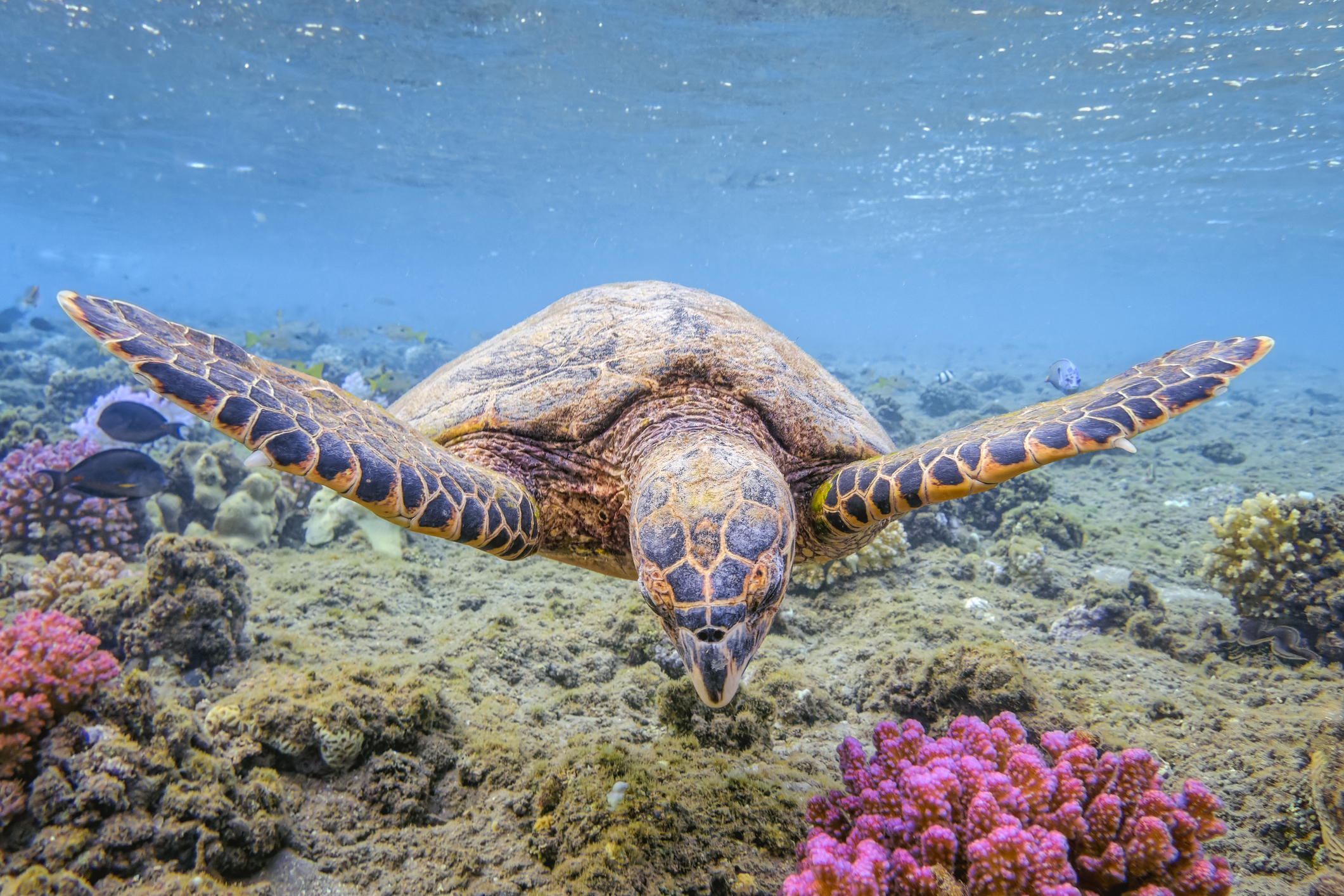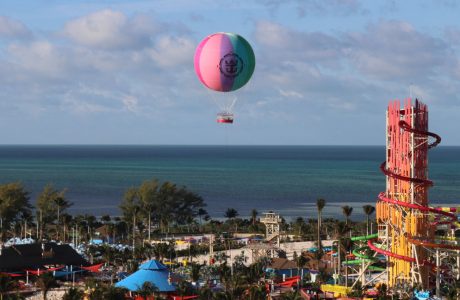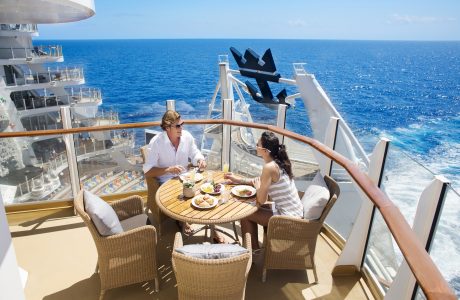The oceans, with their varied shades of blue, are mesmerizing. Add in a cast of fascinating creatures, and it’s easy to understand why we mark World Wildlife Day. The day, designated by the United Nations in 1973 to raise awareness of our planet’s wildlife, also encourages people to make a change in the way they think about and interact with the environment and the world around them.
Every day, we sail the seas that inspire and challenge us. In 2016, Royal Caribbean partnered with World Wildlife Fund (WWF) to see how we could do more. Since then, we’ve developed a series of programs and goals to help in the long-term health of our oceans and to protect some of its most iconic wildlife.
Here are a few of those joint efforts active today to protect endangered wildlife. And read on to learn how you, too, can make a difference.
Hawksbill Turtles
Navigating the seas for more than 100 million years, hawksbill sea turtles are primarily found in coral reefs and mangrove systems of the Atlantic, Pacific and Indian oceans. Their distinct shell has been made famous, sparking a worldwide love of tortoise shell, but that’s brought on a serious threat—poachers. While the trade was banned in 1977, an illegal trade continues to boom, and you’ll find touristy trinkets, like jewelry and combs, still made from these precious shells.
To help protect the critically endangered species, we banded together with WWF-Australia and Australian Museum Research Institute to launch “Surrender Your Shell” in Australia. Some people may have unknowingly purchased these shells and items before it became illegal, and now those can easily be handed over. When these hawksbill shell products are surrendered, not only will there be no fine, but scientists will extract DNA from each item to identify the turtles’ populations most at risk by tracing its origins to the location of the illegal sale and nesting beach.
Learn more about how we are helping hawksbill turtles here.
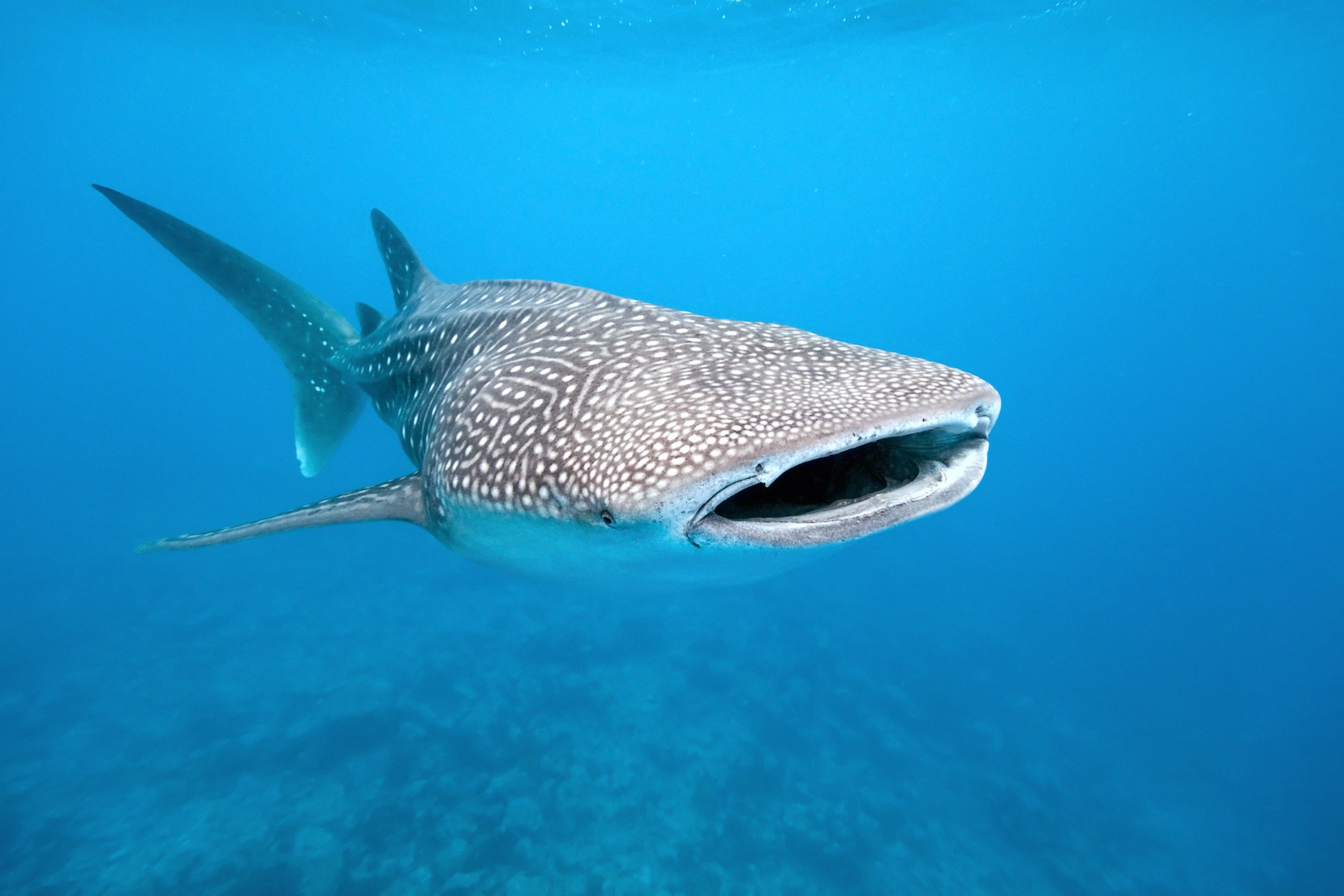
Keeping the waters clean for whale sharks is key in growing their population.
Credit: iStock
Whale Sharks
Travelers come from across the globe to catch glimpses of the endangered, 11-ton whale sharks that inhabit the waters of Donsol in the Philippines. They are the world’s largest fish and can migrate thousands of miles. Keeping the waters healthy so the population can grow is important, and offering sustainable tourism options and sustainable destination management is critical to helping build a healthy ecosystem.
We’re helping keep the tourism options sustainable and waters clean of pollution and litter, and in turn, that’s improving the quality of the rivers that flow into Donsol Bay—breeding grounds for plankton, which is the whale shark’s main food source. WWF also worked with volunteers to plant thousands of fresh mangroves and bamboo to rehabilitate these critical waters.
Learn more about how we are helping whale sharks here.
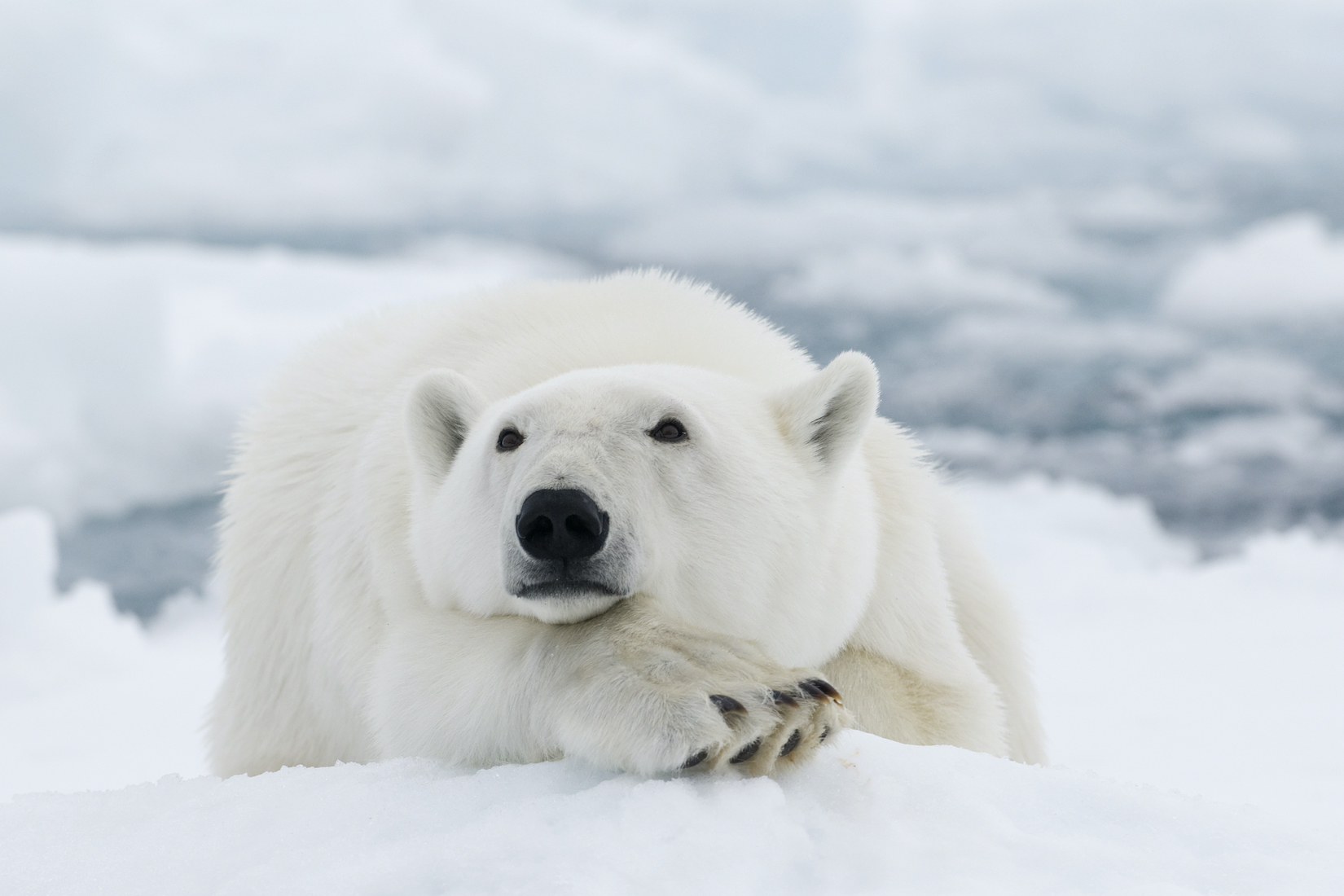
Increasingly warmer temps are changing the Arctic weather and threatening the polar bear’s habitat.
Credit: iStock
Polar Bears
The Arctic is warming faster than any other place on Earth, which is leading to a loss of seasonal sea ice—ice that polar bears depend on. In turn, they are losing their vital habitat. Royal Caribbean raises funds on board, with help from guests and crew alike, to advance WWF’s work to create a better tag to track these polar bears and their behavioral patterns.
The current tracking collars have some significant downsides, so the hope is that small ear tags will be a strong alternative to monitor and understand the endangered animal’s habits and movements.
The technology is still in development, but the outlook is promising, and the findings should help create a better path forward for scientists working to understand the Arctic ecosystems where these alluring creatures live.
Learn more about how we are helping polar bears here.

In addition to making a donation, families can participate in World Wildlife Walks as part of their onboard experience.
Credit: Royal Caribbean
How You Can Help
There are many ways you and your loved ones can help, either from home or at sea. You may want to donate funds—though it may not feel like a lot, even a dollar goes a long way when it comes to helping our environment.
Lending support can be a fun activity on your next family vacation too. When you go on a Royal Caribbean cruise, you can also take a group walk or swim to support. Your participation and funds from these walks, like the World Wildlife Walk for Turtles, and all proceeds from related T-shirt or plush purchases are earmarked for WWF.
You can head here to learn more about how Royal Caribbean is working to help the oceans and their wildlife.
